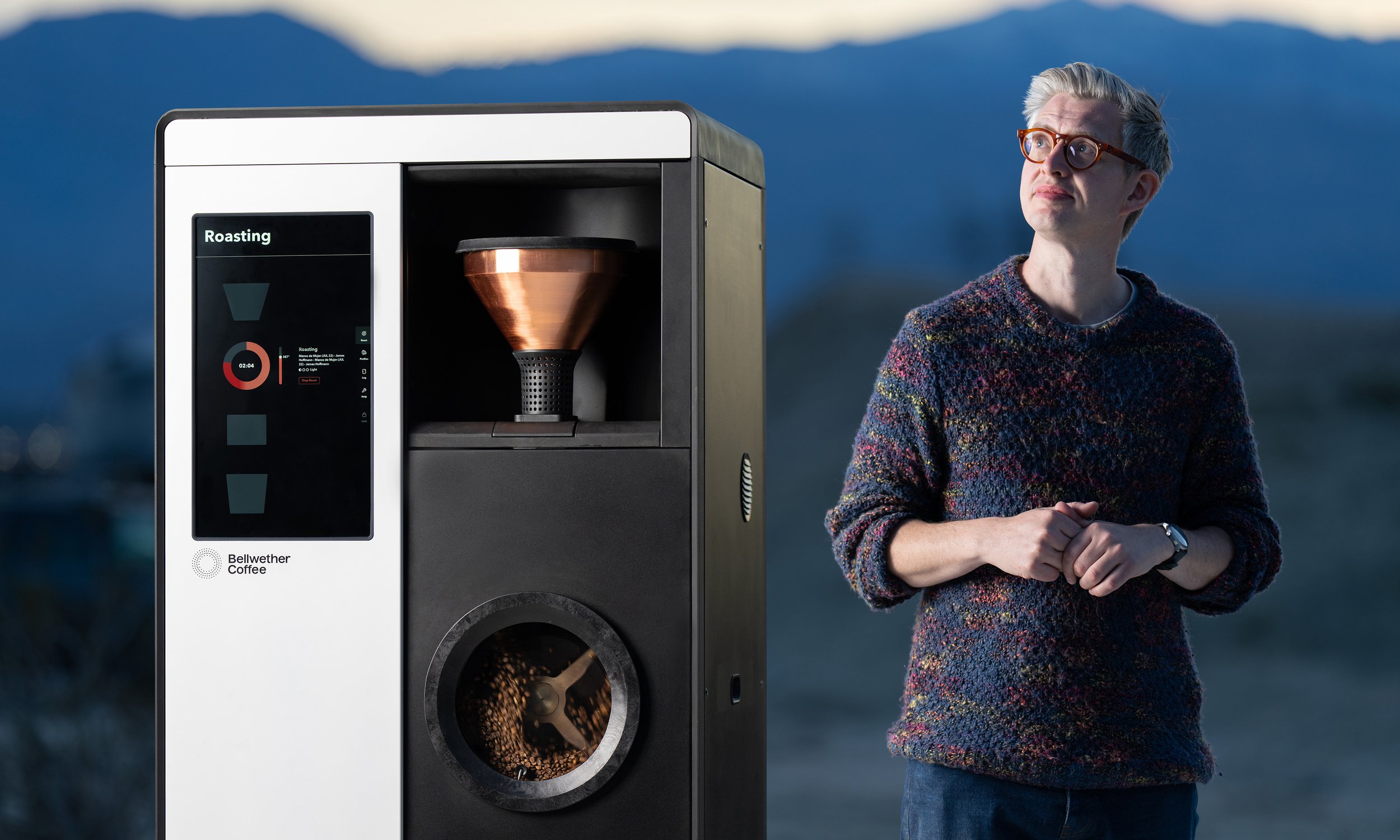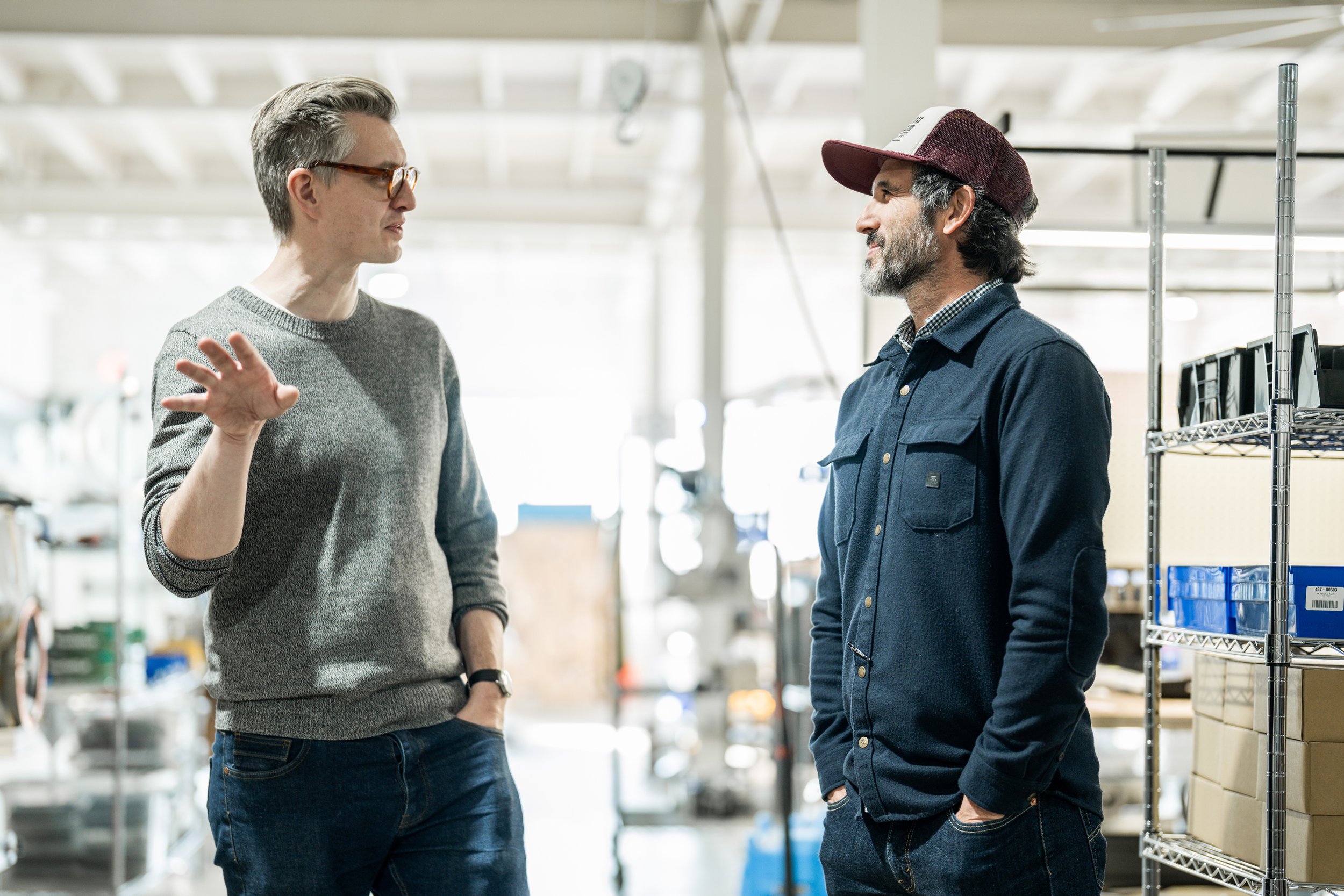
Building the sustainable future of coffee.
Bellwether Coffee x James Hoffmann
When James Hoffmann approached us with his idea to demonstrate what a sustainable future could look by roasting coffee entirely by solar power, we said yes right away. So we loaded a roaster in a trailer with a solar panel and we drove into the sunlit dunes of Indio, California to make history.
This was also our chance to reconnect with James over our newest roaster – the Bellwether Series 2, and partner with him to help prove that electric roasting is capable of producing the highest quality cup of coffee we expect, with the lowest carbon footprint of any commercial roaster.
James worked with our coffee team to create a custom roast profile made on a Bellwether that meets his exacting standards for quality, taste and transparency, to prove you don’t have to sacrifice quality, consistency or craftsmanship to serve the most sustainable coffee ever roasted.

Turning a day’s sunlight into a day’s coffee.
"Bellwether made me reconsider the future."
To prove the possibility of electric, distributed roasting, James asked to do something that had never been done before – become the first person ever to roast coffee using sunlight by harvesting a day’s solar power and connecting it to a Bellwether Roaster.
In this groundbreaking video, James does the math on the energy efficiency of electric roasting versus gas, explores how to roast electric at scale, and proves you can roast world class coffee at the touch of a button without sacrificing quality.

"Electric roasting is inevitable."
“I need to start thinking about alternative fuels right now if I want to have a sustainable business that can last decades more.”
To complete James’ trip to Bellwether, we sat down with him for a candid conversation about the future of sustainability in the coffee industry, what he thinks retailers should consider before deciding to roast, the power and potential of automation, and how coffee roasted on a Bellwether compares to coffee roasted with gas. This honest and engaging conversation asks some of the most important questions facing the coffee industry today, and offers new insight on our biggest challenges.

